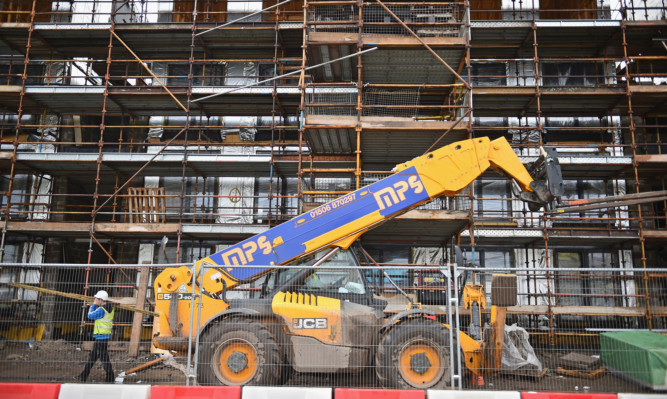Scotland’s construction industry continues to face a skills shortage as workloads are outpacing the availability of qualified professionals, according to a survey.
Almost two-thirds of respondents said a difficulty in sourcing labour was as an obstacle to growth and a similar number highlighted specific problems in finding suitable numbers of bricklayers.
Despite this, the latest construction market survey by the Royal Institution of Chartered Surveyors (RICS) showed the number of new construction projects in Scotland increasing, with about 30% reporting an increase in workloads.
Overall, 65% of chartered surveyors predicted a growth in construction workloads during the next twelve months.
But Sarah Speirs, director of RICS Scotland, said that while it is “exciting” to see the Scottish construction market experiencing growth, it will only be sustainable if the continuing skills gap is addressed.
“The availability of both blue collar and white collar construction workers is reaching crisis point. Without the relevant skills, we will not be able to grow many of the Scottish Government’s priority construction sectors such as infrastructure,” she said.
“Currently, while we know that there is a serious shortage of skills, we don’t yet know why we have seen such a dramatic drop in the labour market over the past five years.
“Part of the problem is the legacy of the collapse in the sector following the onset of the global financial crisis.
“Many professionals and other skilled workers chose to leave the industry and quite simply have not returned or been replaced.
“A real focus on attracting more young people into the industry is critical alongside an expansion of apprenticeship opportunities. ”
The survey revealed the infrastructure and commercial sectors continue to lead the growth in workloads with net balances of 32% and 54% respectively reporting an increase.
However, momentum was least firm in the housing sector as 19% and 17% experienced growth in workloads in the public housing and private housing segments respectively.
